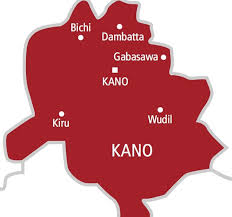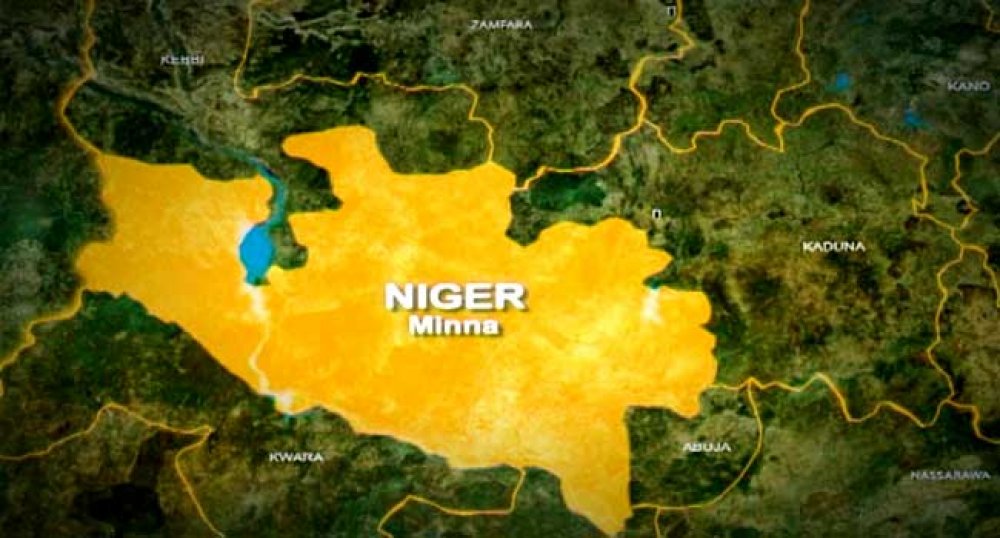NEWS
Rigging no longer in vogue with BIVAS, electoral Act – INEC
***Encourages elite to collect PVC, vote
By John Danjum
The use of Bimodal Voters Accreditation System (BVAS) and the new electoral act has helped the Independent National Electoral Commission (INEC) to completely overcome the menace of rigging in the Nigerian electoral process INEC Chairman, Prof. Mahmood Yakubu has said.
Prof Yakubu who spoke at a Seminar on “2023 and Beyond: Leadership, Politics and Citizens Engagement” organised by the Christen Men Fellowship at St. James Anglican Church, Asokoro, Abuja, proudly indicated that BVAS app was developed by INEC engineers.
Prof. Yakubu who was represented at the occasion by Chukeuemeka Ugboaja, Deputy Director, Voter Education and Publicity (INEC) indicated that another thing that has emboldened INEC to conduct free, fair and credible elections is the new Electoral Act (2022).
Read also>>> 2023: We don’t want ‘Thief’ as Leader – Frank Edwards
According to Mr. Ugboaja, Section 9 (6) of the Act, which deals with registration of voters empower INEC to end the exercise 90 days to the election, after which the commission “cleans the register”.
He said INEC cannot deregister anyone, but removed those who engaged in double registration, an exercise he referred to as the basis for a credible election”.
Another good thing in the new Act is “electronic transmission of election results from the polling unit”.
Ugboaja said ection 51, which deals with over voting, has now made it a function of the total number of accredited voters and not the total number of registered voters as it used to be. “If 20 voters are accredited to vote at a polling unit and you have 21 ballots in the ballot box the result of that unit is void”.
On declaring reult under duress, he said “the law now empowers INEC to reject such result. He gave the example of Imo senatorial election where this happened in 2019, but the Court ordered INEC to issue certificate to the person. This can no longer happen.
Part of the problem of election, according to INEC has to do with elite in the urban centres who hardly vote in elections.
“I’m happy this seminar is coming from elite (Asokoro) who don’t pick their permanent voters cards (PVC) or vote on election days” adding that “they prefer to read newspaper than to vote”.
He said the commission is ready for the task ahead as it has already successfully carried out 8out of its 14 activities, but quickly added that “the people will elect the leader they want and not INEC”.
Dr. Sam Amadi former Chairman, Nigerian Electricity Regulatory Commission (NERC) who was the keynote speaker told the Christian leaders that it 8s their duty to elect leaders before God will affirm it.
“No matter how much we pry, it is our job as a spiritual exercise to take part in the election as a religious duty”, adding that “when you elect leader, they must be people who look like you, who understand you problem. There is danger in electing people from another class”
In his brief remarks, Ambassador Dr. Godknows Boladei Igali, former Federal Permanent Secretary who was Chairman of the occasion greatly congratulate the organisers of the event led by President of the Christian Men Fellowship (CMF) of the Church and by extension the Vicar and leadership of the entire Church for the “foresight and unique sense of responsibility in putting together such a great gathering”.
“Seen from the pedestal of knowledge incubation and dissemination, this seminar, coming at this opportune time in Nigerian history particularly of great worth and significance because the basic building framework for nations and civilization have only been made possible by popular saying that “ideas rule the world”, I must add, as much as God Almighty in whose house we gather today rules over the ideas”.
Mrs. Cesna Nuhu-Aken’Ova, former presidential aspirant on the platform of the Social Democratic Party (SDP) said women and people with disability surfer most marginalisation.
“We lose a lot when we exclude women. Our communication must include women and people with disability. To relegate women is unscriptural”, as women played crucial roles in the Bible, she said.
NEWS
Kano Businessman’s Daughter Kidnapped After ₦8m Ransom Payment

In a shocking incident on Sunday morning, unknown gunmen suspected to be kidnappers invaded the home of Alhaji Auwal, a prominent businessman, in Garo Town, Kabo Local Government Area of Kano State.
The gunmen, estimated to be around 10 in number, forced their way into the residence, breaking down a door to gain entry.
An anonymous source revealed that the attackers were heavily armed, with three carrying firearms and the rest wielding other weapons.
READ MORE: Tinubu Urges Stakeholders To Join Forces To Restart Oil Production In Ogoniland
They quickly gathered the entire family in one room, instilling fear and panic in the household.
According to the source, Alhaji Auwal pleaded with the assailants to spare his family and agreed to meet their demands.
The kidnappers, who were determined to extort money, received ₦8 million from the family.
Despite this payment, the gunmen took the businessman’s eldest daughter, Zainab, a secondary school graduate, before fleeing the scene.
The whereabouts of Zainab remain unknown, and as of now, the kidnappers have not contacted the family.
This abduction comes just 48 hours after the tragic kidnapping and subsequent murder of former Gombe State Permanent Secretary, Atiku Mu’azu, who was killed by gunmen after a ₦10 million ransom was paid.
The two incidents have left the residents of Kano in shock and fear, prompting calls for increased security measures in the area.
Attempts to reach the spokesperson for the Kano Police Command, SP Abdullahi Haruna, for comment were unsuccessful as his phone remained unreachable.
Authorities have yet to make any official statements regarding the investigation.
International News
Colombia Blocks US Deportation Flights Over Migrant Treatment

In a bold move, Colombian President Gustavo Petro declared on Sunday that he would not allow US deportation flights carrying Colombian migrants to access his country’s airspace.
The left-wing leader took to X (formerly Twitter) to express his strong stance, stating, “The United States cannot treat Colombian migrants as criminals. I forbid entry to our territory to US planes carrying Colombian migrants.”
Petro made it clear that such flights would only be accepted once Washington established a protocol to ensure the “dignified treatment” of deported migrants.
READ MORE: How Trump Plans To Grow American Economy By $1 Trillion Daily
The president later confirmed in a separate post that he had already turned back US military planes that were en route with Colombian migrants on board, although he did not provide further specifics on the matter.
While AFP sought confirmation from US authorities regarding the blockade of deportation flights, no immediate response was forthcoming.
Petro’s statements come just a day after Brazil’s government voiced similar outrage over the treatment of deported Brazilians.
Brazil condemned the US administration under President Donald Trump, citing instances where Brazilian migrants were deported while handcuffed on flights, describing it as a “flagrant disregard” for their basic rights.
In his remarks, Petro emphasized that he would be open to allowing civilian US flights to transport deported migrants as long as they were not subjected to treatment “like criminals,” signaling a broader call for humane treatment of migrants under international deportation policies.
NEWS
Four Dead, Many Injured As Explosion Rocks Niger State Mining Site

An explosion at a mining site in Sabon Pegi, Mashegun Local Government Area of Niger State, claimed the lives of four individuals and left several others injured on Sunday morning.
The blast occurred as miners resumed operations, sending shockwaves through the community.
While the exact cause of the explosion remains undetermined, local residents have pointed to the poor handling of explosive devices by mining companies as a possible factor.
READ MORE: Thisday Awards: Diana Ross Arrives In Nigeria
The incident has sparked concerns about safety practices within the mining sector.
Community sources confirmed the recovery of four bodies, but authorities fear the death toll could rise.
Investigations are ongoing to establish the cause of the blast and assess the full extent of the damage.
One resident, Aminu, described the chaos that followed the explosion. “The sound was so loud that many of us thought it came from the hydroelectricity dam nearby. People panicked and ran into the bush for safety,” he recounted.
Another community member highlighted the potential role of mining operations in the tragedy.
“Mining companies here frequently use explosives during their activities, and this seems like an operational issue, not something related to terrorism,” the resident said, dismissing concerns about a security threat in the area.
As of the time of reporting, neither the state government nor security agencies have released an official statement regarding the explosion.














